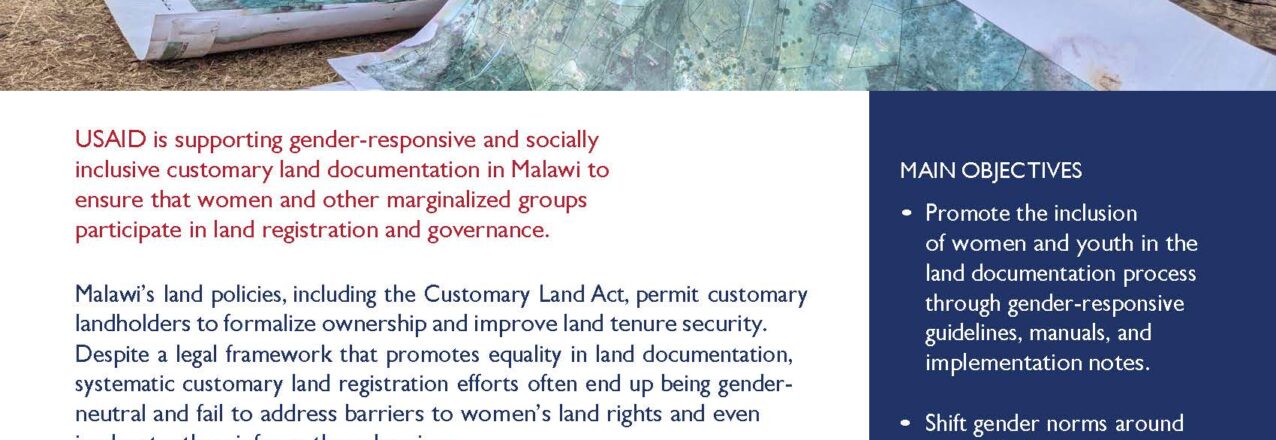USAID is supporting gender-responsive and socially inclusive customary land documentation in Malawi to ensure that women and other marginalized groups participate in land registration and governance.
Malawi’s land policies, including the Customary Land Act, permit customary landholders to formalize ownership and improve land tenure security.
Despite a legal framework that promotes equality in land documentation, systematic customary land registration efforts often end up being gender- neutral and fail to address barriers to women’s land rights and even inadvertently reinforce these barriers.
The approach of the USAID Integrated Land and Resource Governance (ILRG) program recognizes social barriers as a key challenge to translate legal provisions into women’s access to and control of land in both matrilineal and patrilineal systems. With funding from the Women’s Economic Empowerment Fund at USAID, ILRG is working with the Land Reform Implementation Unit (LRIU) at the Ministry of Lands, Housing, and Urban Development (MLHUD) to integrate gender sensitization into customary land documentation in Malawi.
A gender-responsive and socially inclusive registration process will address the barriers and social norms that often hinder the ability to own, access, use, and control land while protecting the land rights of women and other marginalized groups like youth, the elderly, and people with disabilities.
Strengthening women’s land rights and participation in land governance supports sustainable livelihoods, ultimately promoting food and economic security for rural household and communities.
Main Objectives
- Promote the inclusion of women and youth in the land documentation process through gender-responsive guidelines, manuals, and implementation notes.
- Shift gender norms around women’s land rights at institutional, community, and household levels.
- Encourage gender integration into customary land documentation among national and international stakeholders.
- Build the capacity of district level land registry and clerks to manage land records that are trusted and verified by all land users and landholders, including women and youth.
Implementation Overview
Government Partners
Expected Outcomes
- 45,000 people will benefit from gender-responsive customary land documentation with the issuance of land certificates.
- An improved land administration structure that can support future land documentation processes.
- More gender-responsive and accountable public sector and customary land authority.


